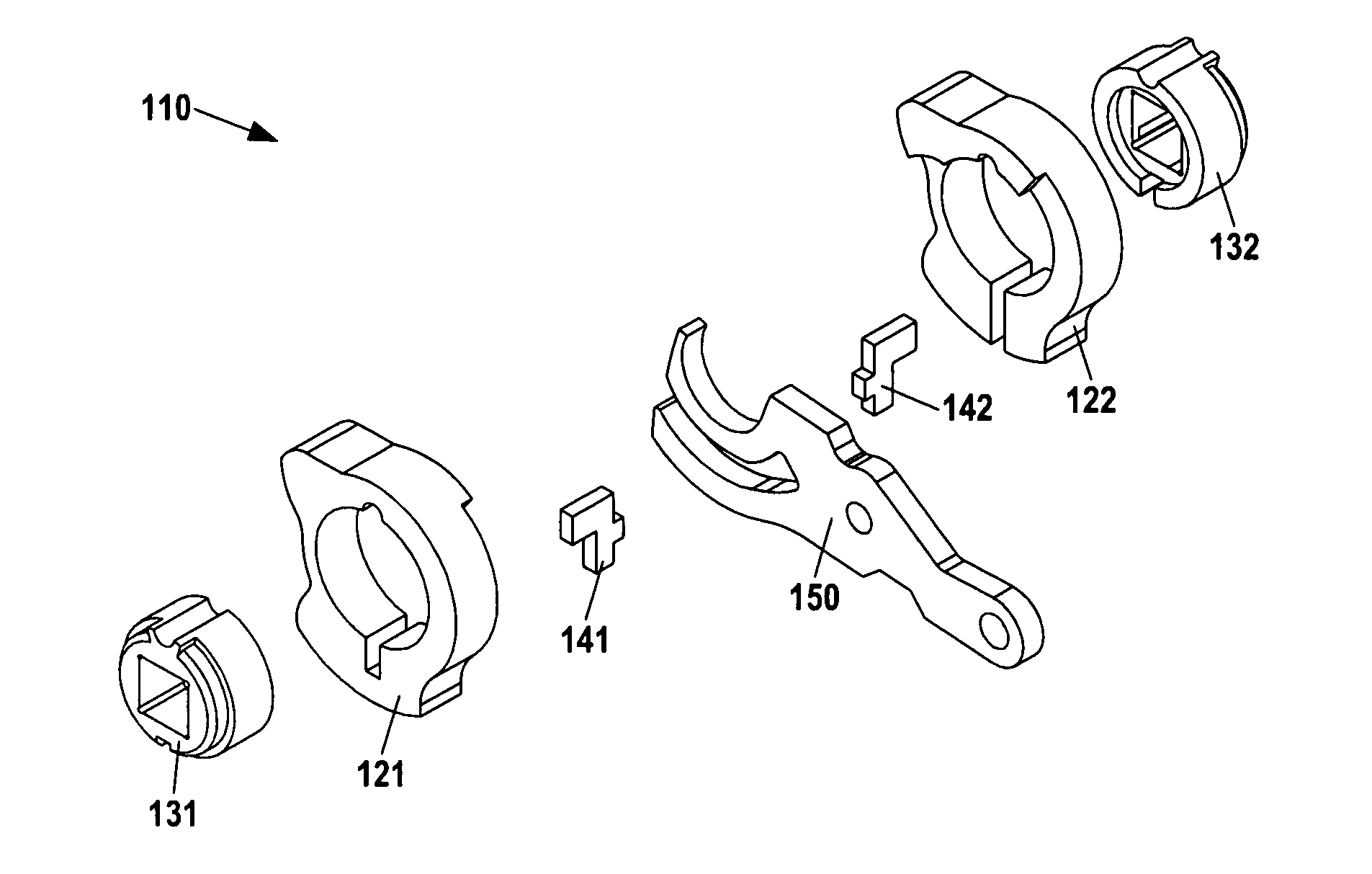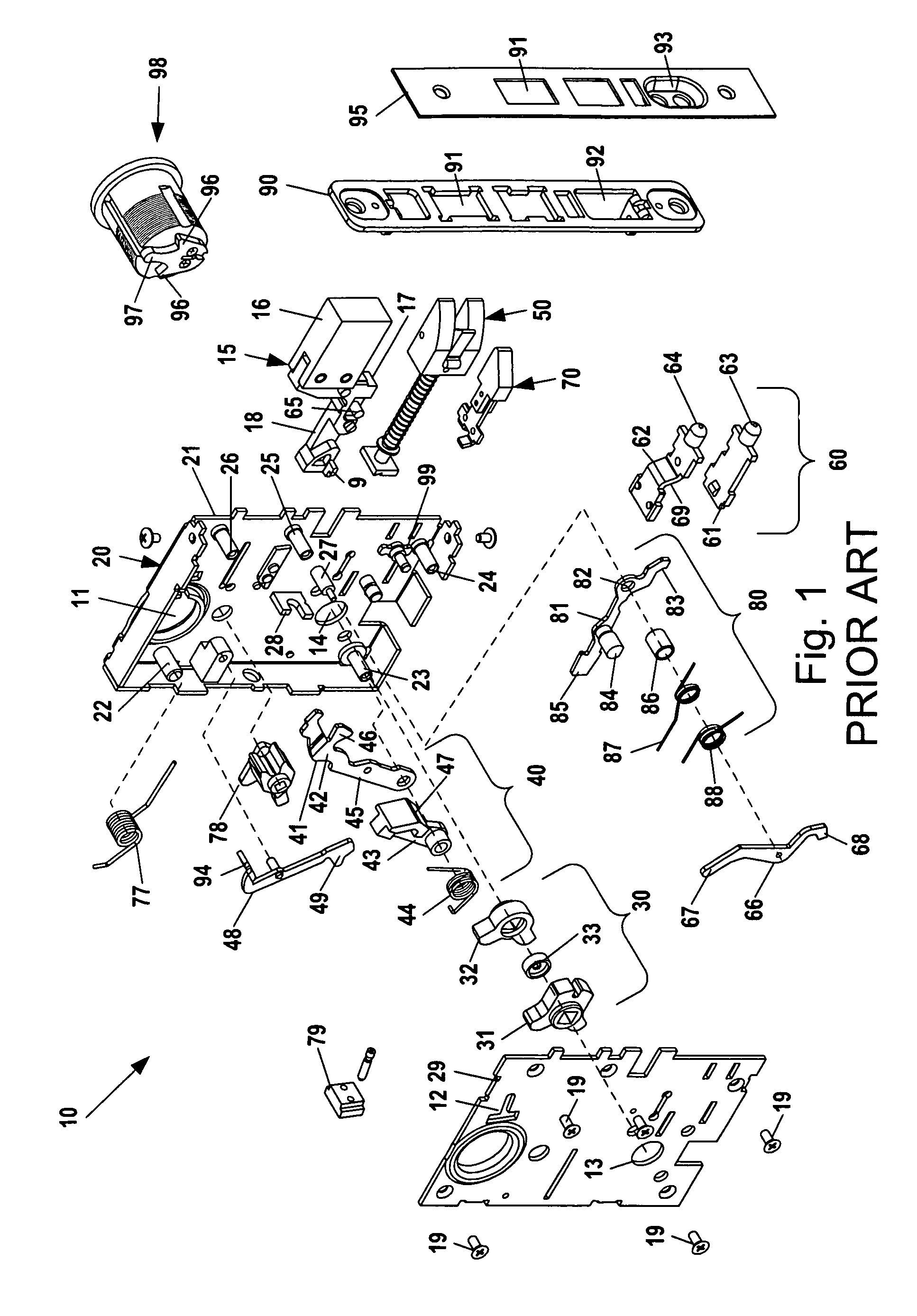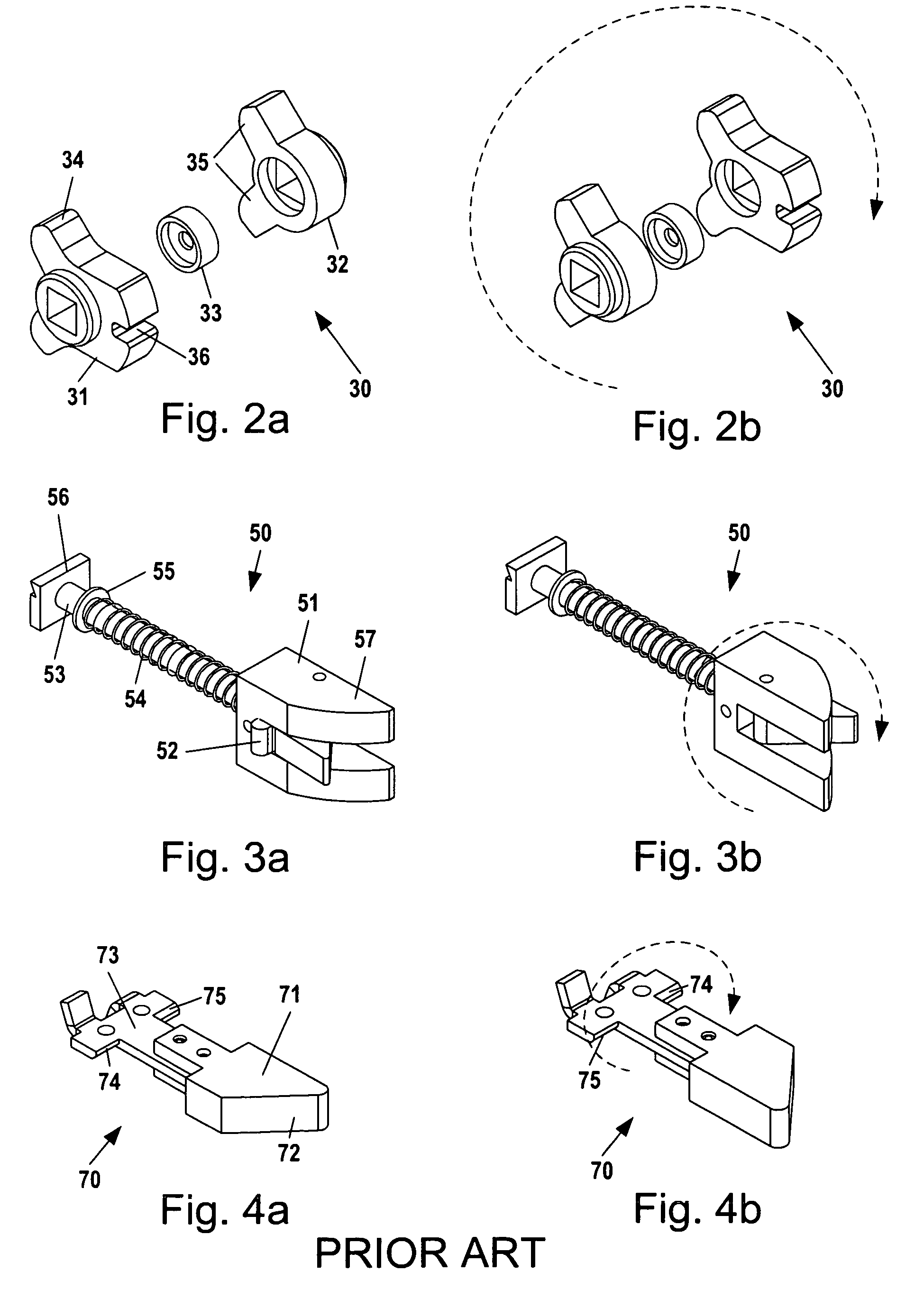Mortise lock assembly
a technology of mortise locks and parts, applied in the field of mortise locks, can solve the problems of affecting the installation process of right-hand doors, and affecting the safety of the mortise locks
- Summary
- Abstract
- Description
- Claims
- Application Information
AI Technical Summary
Benefits of technology
Problems solved by technology
Method used
Image
Examples
Embodiment Construction
[0069]In describing preferred and alternate embodiments of the technology described herein, as illustrated in FIGS. 1-39, specific terminology is employed for the sake of clarity. The technology described herein, however, is not intended to be limited to the specific terminology so selected, and it is to be understood that each specific element includes all technical equivalents that operate in a similar manner to accomplish similar functions.
[0070]I. Conventional Elements
[0071]To highlight some of the novel components in the present invention, comparison is made with FIGS. 1-4b, which illustrates a prior art mortise latch and lock body 10. The interaction of some of the conventional elements is also revealed in FIGS. 8 and 9. It should be noted, however, that FIGS. 8 and 9 are not prior art locksets, because they contain several new elements according to the present invention.
[0072]The mortise latch and lock body assembly 10 mounts in a door opposite a strike plate on a doorjamb (n...
PUM
 Login to View More
Login to View More Abstract
Description
Claims
Application Information
 Login to View More
Login to View More - R&D
- Intellectual Property
- Life Sciences
- Materials
- Tech Scout
- Unparalleled Data Quality
- Higher Quality Content
- 60% Fewer Hallucinations
Browse by: Latest US Patents, China's latest patents, Technical Efficacy Thesaurus, Application Domain, Technology Topic, Popular Technical Reports.
© 2025 PatSnap. All rights reserved.Legal|Privacy policy|Modern Slavery Act Transparency Statement|Sitemap|About US| Contact US: help@patsnap.com



